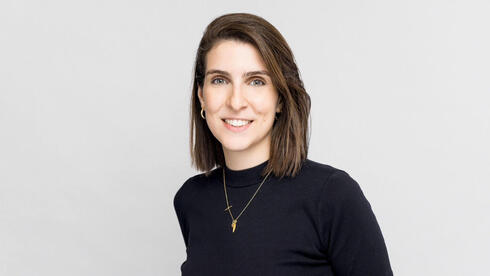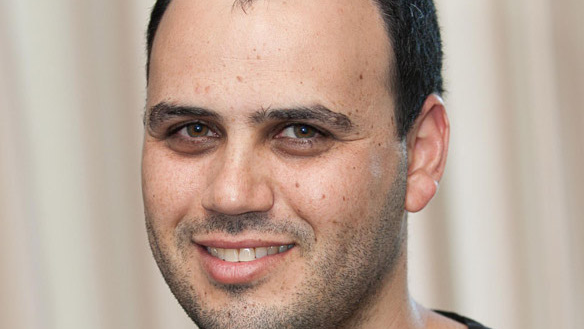
What’s next for Israel: predictions from tech industry leaders
What’s next for Israel: predictions from tech industry leaders
Nine experts forecast economic downturns, political upheavals, and advancements in space and AI.
Nine senior speakers from the high-tech industry gathered on one stage and presented their forecast for the coming years, in a conversation moderated by Barak Pridor at the Journey conference.
Rafael Benjarano of Jefferies: “I am not optimistic for the next five years. We will likely see a recession following the war and ongoing insecurity. This will severely impact the currency, which may weaken significantly due to large government expenditures post-war, possibly making the shekel as weak as it was 20 years ago. However, in high-tech, we will see a greater representation of women. Long-term, I am more optimistic, as Israel could become a gateway to the Middle East, particularly the Emirates and Saudi Arabia, bringing substantial wealth to Israel.”
Yael Elad of Aleph VC: “I foresee elections in the near future accompanied by extensive debates. There will be a shift from the business world to government, driven by a strong desire for change. Israel will need to address the proliferation of weapons in the Arab world and among its own public. We will also continue to see young people leaving Israel, a trend that is unlikely to subside soon. In the coming decade, I am more hopeful; the conscription age will include ultra-Orthodox individuals, and I expect to see religious women elected to religious parties.”
Tal Barnoach of Disruptive VC: “In Israel, a new government is expected to be elected within the next 12 months. I believe we will reverse the damage done by the current administration. There will be agreements with Saudi Arabia and later with the Emirates, as well as the implementation of legal reforms. Over the next ten years, I anticipate that 500,000 Jews will immigrate to Israel, and Iran may experience a military coup leading to the current government’s overthrow. Israel will adopt a constitution, and I foresee a global recession with a significant decline in the Nasdaq.”
Inbal Kreiss, Head of the Space Division at Israel Aerospace Industries (IAI): “In the field of space and defense, we predict a 15% increase in defense spending over the next five years. There will be a shift from private to government spending, with government funding becoming more prominent. AI will play a central role in defense technology, exemplifying its dual use in defense and civilian sectors. Additionally, we expect to see increased investments in defense startups and advancements in quantum technology that will significantly impact the technology landscape.”
Gigi Levy of NFX: “Six months ago, I was more optimistic about our situation improving within five years. Now, I anticipate challenges, including increased polarization and negative immigration trends. We may face at least two more election campaigns. In the next decade, we will need to find new strategies as a country, which may lead to positive immigration and a shift in the political landscape with new leadership.”
Yifat Oron of Blackstone: “In the next five years, the Abraham Accords will expand regardless of the government. Significant financial contributions to the academic world are expected, with donations of approximately $500 million flowing into Israeli universities. The army will become significantly larger and smarter. In the next decade, 15% of the army will be ultra-Orthodox, and we will see major infrastructure projects, such as a train from Haifa to Abu Dhabi with stops in Riyadh and flights to destinations including Tehran. We may also have a female prime minister.”
Asaf Peled of Minute Media: “In the next five years, the ultra-Orthodox population will increase, and the birth rate will double. The region will likely experience more wars, and the private market will contract. The number of female tech entrepreneurs will rise. Over the next decade, northern and southern regions will face additional challenges, leading to more immigration to the center. The proportion of Arabs in tech will increase by about 10%, and social media usage will decline. One of the most significant predictions is that Israel will reach the World Cup and score more than one goal.”
Adi Soffer Teeni of Meta: “I believe that in the next five years, significant talents will seek roles in the public sector, and civil weddings will become an option in Israel. There will be a peace agreement with Saudi Arabia allowing Saudi doctors to specialize here. We will see an AI-written song win a Grammy and the first AI-written film win an Oscar.”
Jeremy Suard of Exodigo: “Israel will significantly increase investment in weapon development, doubling to $2 billion and extending beyond the air sector. Gaza and the West Bank will remain vulnerable with numerous terrorists. The status quo with Hezbollah is likely to continue, and the Russia-Ukraine conflict will persist. In a decade, Hezbollah may move from the border, Gaza will be rebuilt, but I am very pessimistic about the future there.”














